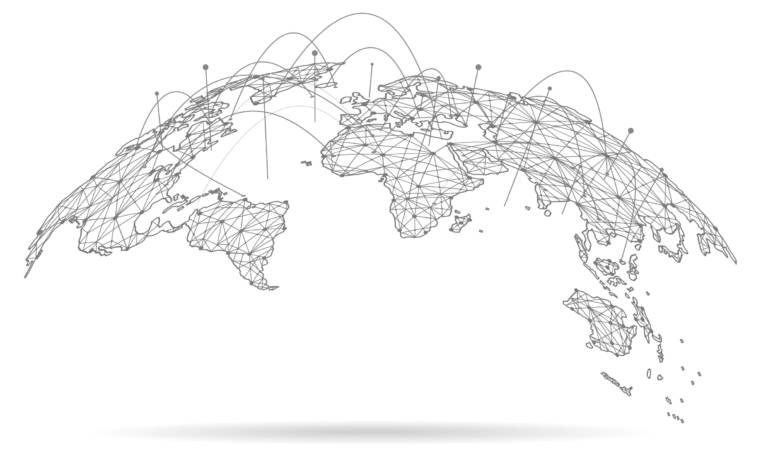Recognizing the Value of Letters Rogatory in International Legislation
Recognizing the Value of Letters Rogatory in International Legislation
Blog Article
The Role of Letters Rogatory in International Legislation: Trick Insights
Letters rogatory act as a critical instrument in global regulation, helping with cross-border lawful aid by allowing jurisdictions to formally request proof and activities from each other. Rooted in historic criteria and defined through contracts like the 1970 Hague Convention, these demands are necessary for fostering international teamwork. Their application commonly comes across considerable obstacles, including discrepancies in lawful criteria and step-by-step delays, which can hinder their efficacy. Recognizing the subtleties of this process raises critical inquiries concerning worldwide partnership and the potential reforms required to improve its reliability. What effects might these obstacles have for future legal proceedings?
Interpretation of Letters Rogatory
In the realm of international legislation, letters rogatory function as official requests released by a court in one jurisdiction to look for support from a court in an additional territory. Letters rogatory. These demands are especially significant in cross-border lawful proceedings, where the enforcement of a court's order or the event of evidence might be hampered due to administrative limitations

The process typically requires the asking for court to verbalize the particular information or activity needed from the foreign court, sticking to the legal protocols and conventions developed between the territories included. As soon as issued, the letters rogatory are sent through polite channels, which might include consulates or consular offices, to make certain that the request is recognized and acted on by the foreign court. On the whole, letters rogatory exhibit the cooperative structure vital for effective global lawful processes.
Historic Context
Although the method of letters rogatory has old roots, its formalization within the structure of worldwide law emerged significantly in the 20th century. Historically, such ask for judicial support were made use of in various lawful traditions, consisting of Roman law, where they assisted in cross-border cooperation in lawful issues. The concept obtained renewed interest with the surge of globalization and the enhancing intricacy of international legal communications.
The mid-20th century saw the establishment of treaties and conventions that sought to systematize the process of letters rogatory. Significantly, the 1970 Hague Convention on the Taking of Proof Abroad in Civil or Commercial Issues provided a structured strategy, enhancing the effectiveness of these demands - Letters rogatory. This duration marked a shift from casual setups to a more methodical structure, which resolved the challenges positioned by varying nationwide lawful systems
As states became much more synergistic, the demand for reliable mechanisms to gather evidence across borders emerged, enhancing the role of letters rogatory in helping with worldwide teamwork. Today, they continue to be a crucial instrument for acquiring proof and making sure that justice goes beyond nationwide borders, showing the progressing nature of global regulation in feedback to international obstacles.
Refine of Issuing Demands
The procedure of providing letters rogatory generally includes a number of important actions created to make sure that ask for judicial help are clear, details, and certified with both residential and worldwide legal standards. An event looking for support must prepare an official demand that details the important truths of the case, the additional info alleviation looked for, and the particular proof or testament needed. This document has to be crafted with accuracy to meet the legal needs of the jurisdiction in which it will be sent.
Following the prep work of the demand, it is submitted to the ideal authority, commonly a court or other a designated governmental firm. This authority examines the request to guarantee it sticks to legal requirements and procedural standards. Once accepted, the request is sent to the foreign territory with polite channels.
Upon invoice, the foreign court reviews the request's conformity with its local regulations and methods (Letters rogatory). If approved, it proceeds to carry out the request, which might involve the issuance of subpoenas or the collection of evidence. Throughout this procedure, preserving clear interaction between the asking for and receiving territories is crucial to make sure effective teamwork and the fulfillment of the request
Difficulties and Limitations
Constraints and challenges often arise in the procedure of executing letters rogatory, commonly stemming from varying lawful systems and procedures between jurisdictions. One substantial obstacle is the varying requirements of admissibility for proof, which can lead to issues in the approval of documents requested through letters rogatory. Furthermore, the lack of uniformity in legal terminology and meanings can produce misconceptions, making complex interaction between courts in different countries.
Furthermore, delays prevail as a result of bureaucratic processes, as the request may need to pass through multiple layers of legal authorities before it is fulfilled. In some instances, the requested jurisdiction may lack the required resources or determination to work together, additionally impeding the process. Language barriers likewise add to challenges, as accurate translation of legal papers is essential for making sure that the designated message is communicated without distortion.
Finally, sovereignty get more issues may arise, as some states are reluctant to comply with demands that they regard as infringing upon their lawful autonomy. These challenges highlight the complexities inherent in the usage of letters rogatory, demanding higher harmonization and collaboration among global lawful systems to improve their effectiveness.

Impact on International Teamwork
Identifying the significance of letters rogatory in promoting global participation is essential, as these requests promote cross-border lawful assistance and promote collective initiatives in civil and criminal issues. By enabling one jurisdiction to formally request support from one more, letters rogatory produce an organized lawful structure that boosts the performance of international communication between judicial authorities.
The use of letters rogatory assists to establish shared depend on and regard amongst countries, which is necessary in a significantly interconnected globe. They offer as a device not just for collecting proof however likewise for making sure that lawful processes are supported across borders. This is particularly important in combating transnational crime, where the inability to secure participation can threaten justice.
In addition, the dependence on letters rogatory can enhance complicated legal proceedings, reducing hold-ups and unpredictabilities in global investigations. The procedural safeguards inherent in this procedure add to the security of individual rights while promoting teamwork among states. Ultimately, the influence of letters rogatory on worldwide collaboration underscores their duty as crucial tools in the promo of justice, promoting a collaborative spirit that goes beyond nationwide boundaries and legal systems.
Final Thought
In verdict, letters rogatory offer as a vital tool in international legislation, promoting cross-border legal help and participation. The continued development of these systems is essential for improving the efficiency of global legal processes, eventually promoting more powerful cooperation in both civil and criminal matters across jurisdictions.
Letters rogatory offer as a crucial tool in international law, helping with cross-border legal help by enabling territories to officially ask for proof and activities from one an additional.The procedure usually requires the requesting court to articulate the specific information or action needed from the foreign court, adhering to the lawful methods and conventions developed in between the territories entailed. Historically, such demands for judicial help were made use of in different lawful customs, including Roman legislation, where they helped with cross-border collaboration in legal matters.The procedure of releasing letters rogatory typically involves numerous essential actions created to make sure that requests for judicial support are clear, specific, and certified with both worldwide and domestic lawful criteria.Additionally, delays are common due to governmental procedures, as the request might require to pass through multiple layers of lawful authorities before it is fulfilled.
Report this page